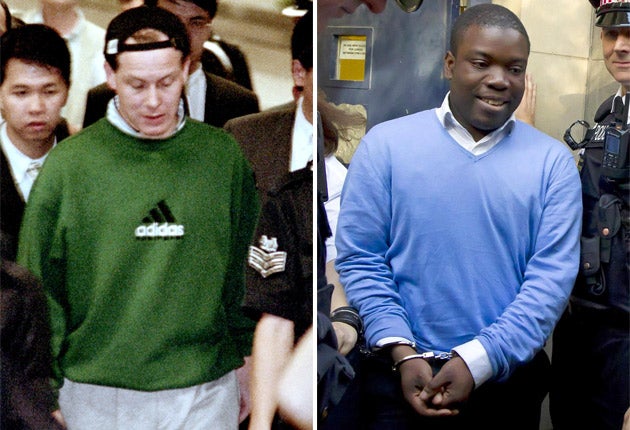A rogue trader speaks: 'You live in fear. Your whole life is a lie'
Nick Leeson breaks his silence to reveal his thoughts on the plight of Kweku Adoboli

You expect to be caught in the first 24 hours. Every time the door to your office opens, or the phone rings, you think it will be somebody looking for answers.
You live in fear. In that very initial period, the heart is racing. You should have closed the position at the earliest opportunity, and taken no more than a slap on the wrist.
But when the call, or the knock on the door, doesn't come, you start to grow in confidence. You start to believe that you'll have the time to correct it, that you can push the barriers that little bit further – that you can get back to ground zero and start again.
You might get there; you might even get there within a couple of days, and never tell anyone. That happens all the time in banks.
Eventually you start to think in terms of weeks, then it becomes months, and the losses become large multiples of the original. Once it passes a certain point, £100m maybe or £500m, the actual figure becomes superfluous.
Eventually the call did come. I did the cowardly thing. I ran.
There is release, in the end, and relief. Your whole life, for several years, has been a lie. Lying to your friends, lying to your family. Nobody knew apart from me. Alcohol helped, and at the weekends I would try and get away from it all.
In the bank, I was a pariah. They had a Christmas party at which they wore Natural Born Killers T-shirts with my face on; the Quentin Tarantino film had just come out.
But the support I received from my family and my friends was overwhelming. Even the general public was supportive too. I received lots of letters. That might not be the case any more: the public is feeling pretty aggrieved about the banks – they've never been held in such low regard.
But you accept what's happening. For the last few years your life has been irrational. Suddenly it becomes rational. You start to wonder how long you will spend in prison, wonder whether you will have the capacity to cope with it mentally.
Whatever actually happened, Kweku Adoboli should co-operate as much as he can. They will present him with questions and evidence that he's going to have to answer. All of the documentation, all of the facts will be there.
Jérôme Kerviel, and the traders in some other, less high-profile cases, have maintained the banks knew what they were doing, that they encouraged it. I don't believe that for a second.
They need to come to terms, personally, with what happened, with their own dishonesty. If you can't accept that you can't move on.
If I had put my hand up at the end of the first year, I'd have received a slap on the wrist. By the end of the second, I'd have lost my job. By the end of the third, it had become criminal. I am a criminal, by the letter of the law, but there was no criminal intent there. You don't go into these things intending to become a criminal. You want to make money for the bank, be a good trader and get a big bonus. The criminality is always with the individual trader, but the bank, with its incompetence and negligence in controlling what is going on, is complicit.
In all those cases there are strange similarities: the length of time that passes before they reveal themselves, the amount of money involved, the age of the trader.
I worry that there isn't anything specific that can be done. When the disaster is confined to one organisation, as this one seems to be, the others don't really care too much.
But the role of the risk manager is of paramount importance. The individuals in that role should be of the highest calibre. They should be paid well, and they should be able to challenge people. The traders have always been almost untouchable.
Every bank will encourage financial innovation. When one market gets saturated you must move on to a new one, which will require new and more complex products.
That creates new risks, and new difficulties in assessing those risks. The infrastructure to control it is always playing catch-up. The terrible event happens, then they put the house in order. They need to put the house in order now.
I genuinely believed that the financial crisis of 2008 really would be the catalyst for everyone to put their house in order, but the opposite seems to be true.
The reports indicate that it was in 2008 that this guy embarked on this reckless risk-taking.
UBS was being rescued by the Swiss taxpayer; they knew they were in difficulty. Surely they went through everything to get themselves in order. That this thing has escaped their view I find absolutely astounding.
Join our commenting forum
Join thought-provoking conversations, follow other Independent readers and see their replies
Comments